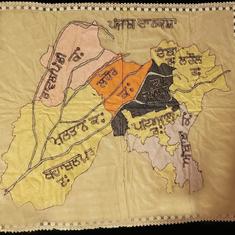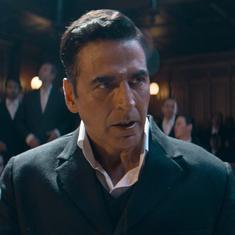Greenpeace is the kind of place where you can come to work in shorts and a tee. Now that’s so unprofessional! I mean, it makes sense as a dress code for advertising agencies, but why should NGO people need to be comfortable? What thinking, creative work do they do?
As if this wasn’t enough, some staffers bring their pets to work. The Greenpeace Bangalore office team has even adopted a cute stray named Bidu. OMG! An office is a place for humans to work. Why are they turning it into an animal shelter? Show me their Articles of Association!
Food and drink
We celebrate victories, birthdays, promotions, farewells. There is almost always cake, and sometimes we go to a restaurant or a bar and chow down and drink beer. Later, we split the bill, unless someone calls “treat!” But, hey, did I say beer and cake? Why should NGO people be able to afford this stuff? Working in a non-profit should mean living a simple life with none to minimal luxuries. Obviously, Greenpeace is corrupting the age-old stereotype of the khaki kurta-clad activist with a jhola. Okay, forget that. They drink beer? Beer! Those who commit their lives to serving society should not consume alcohol. It ruins their holier-than-thou image. They should be living a one-and-a-half star life. I long for the day when ministers and NGO people can live happily together with minimal needs. Sadly, I doubt this will happen, because our ministers serve the nation and the NGO people only serve society.
Greenpeace activists have embraced non-violence. They participate in non-violent protests and have sometimes been arrested and charged for what they believe in, for giving the environment a voice. Several of them are students, pursuing education in the fields of law, engineering, business management and the arts, among others. Why, I ask you, are these youths not taking their studies seriously? Why are they spoiling their chances of getting a good job being volunteers with such a controversial organisation? Who gave them the right to think beyond their books and make risky decisions?
By 18, they are only trusted to choose their government. There is no need to look around their world and see injustices, let alone, try and address them. There is a time-tested little league rat race for them, where they can fight one another for a college seat and study till they drop dead or go into depression. How are they finding time to volunteer and effect social change? Imagine a budding engineer who is also an environment activist. This person will say tomorrow that she doesn’t want to work on a highway project because it runs through some jungle. Now who will tell this idiot that we travel in cars, not fly on the backs of flamingos? What black magic is Greenpeace working on these youngsters that they take time away from their friends and smartphones to go there? Why can’t they come to a political rally instead? After all, political campaigning alone has changed India, no?
As you can see, I can give you a lot of inside scoop on Greenpeace. But at the same time, I can also tell you what makes it so amazing.
Four satisfying years
In 2008, I made the biggest decision of my life to leave the corporate world to join an NGO. Three years later, I joined Greenpeace at half the salary I made in the last for-profit organisation I worked at. Now I can never go back to work in an organisation that turns people into machines, mechanically performing tasks without asking how it benefits the creatures of the world. I’ve been at Greenpeace for four years and talked to countless people about the dangers facing our environment. These stories rarely make it to news articles. And when they do, readers barely glance at them. Why? Because we’ve created a society where the environment, with all its resources, is merely our servant meant to bring us food and water when we please. Otherwise, its health and wellbeing is no individual’s responsibility.
A Greenpeace fundraiser stands on street six hours a day talking to a dozen people. This can be twisted to mean that we force open their hands and take their money. It takes a willing eye to see that we place the responsibility for this planet and its creatures in that palm, close it and say, “Thank you for paying my salary so I can do my work without worrying about rent and my education. I need training to keep learning and doing better, just like you. Thanks for footing the bill. Now we will go out there, take the necessary risks and precautions, and we will fight. Change is not immediate. But you just hold on tight to this and we will see you at the finish line.”
I rest my case. Though I myself will not rest much on this extremely warm Saturday. I’m off to the Greenpeace office. Wait, why are we keeping the office open on Saturday and wasting electricity? Because we have solar panels on the roof – and sunlight is free.










